AT
-
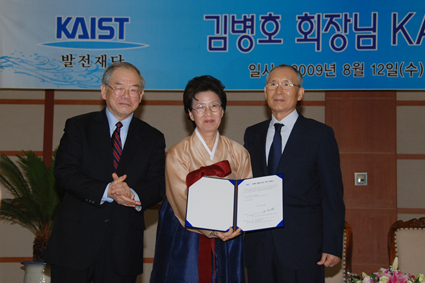 Self-Made Businessman Donates $24 Mil. Worth of Property to KAIST
Byeong-Ho Kim, a self-made businessman, has donated land worth 30 billion won ($25 million) to KAIST, the university"s authorities said on Thursday (Aug. 13).
The 68-year-old businessman said his aim is to give students from lower-income families a chance at a decent education and, ultimately, make Korea richer and powerful through development of science and technology. He runs the Seojeon Farm in Yongin, Gyeonggi Province.
Kim visited KAIST on Wednesday (Aug. 12) with his wife and 36-year-old son to finalize details of the donation with KAIST President Nam-Pyo Suh. He signed papers to certify the deed to donate 94,380 square meters of land in a ceremony.
"I promised my family I"d invest our money for a good purpose. Now I hope KAIST can educate students who can"t afford to pay tuition fees. I wasn"t able to study
further than elementary school due to poverty," Kim said, wishing that his donation could be used in fostering talented students and great scholars from around the world.
Kim"s wife, Sam-Yeol Kim, 60, sent an e-mail to KAIST last July 27, on behalf of her husband who suffered a stroke in 2004, to inform the university of her husband"s intent to make the donation.
Kim had pledged to his wife and son that some day he would return all his assets to society before his death. He began to look for the right beneficiary five years ago and chose KAIST as he was impressed by reformatory and innovative efforts at the university where its president was donating all his extra earnings to the university.
“I believe that KAIST can make my dream come true. It is to have advanced science and technology education turn Korea into a country where everyone can live happily,” said Kim at the ceremony.
He recalled his early life, saying, “I left for Seoul when I was 17 years old with just 76 won. I had to save money so much it was scary. Even when the weather was stifling, I refused to buy myself cold soft drinks just to save 1 more won.”
Even though he grew up in a difficult environment, Mr. Kim maintained a firm conviction in familial ties and education. Being the oldest of seven children, he had to support his younger siblings’ education, but never complained about his own lack of opportunity. When his father died, he took money that had been left over from funeral expenses and donated it to relatives as scholarships for their children. He believed that such kindness was the best way to make his father’s passing meaningful. In addition, he donated one billion won to a scholarship fund that helps those like him, who never had a chance to study or learn.
Mr. Kim’s favorite phrase is, “Earning money takes skill, but to spend it is an art.” This mirrors his philosophy of saving and economizing in order to make as much money as possible, then donating generously to the upbringing of future generations.
The decision to donate was also heavily influenced by the support of his wife, and his family. When he first hinted at his intention to donate, his family simply accepted the decision, saying that they were proud of him. Kim had always emphasized that wealth should be given back to society, and as such, his son Se-Yoon Kim donated to the United Nations Children’s Fund (UNICEF) and other charity organizations every month, saying that his actions were an obvious duty.
KAIST officials said they were emotionally moved to learn that Mr. Kim donated the fortune to a university, which is completely unrelated to him or anyone in his family, simply for the sake of the nation’s future. They said that Kim is a figure that all of Korean society should follow, and that everyone in KAIST will etch his wish into their hearts, and try their hardest to make sure future generations will prosper.
2009.08.18 View 12562
Self-Made Businessman Donates $24 Mil. Worth of Property to KAIST
Byeong-Ho Kim, a self-made businessman, has donated land worth 30 billion won ($25 million) to KAIST, the university"s authorities said on Thursday (Aug. 13).
The 68-year-old businessman said his aim is to give students from lower-income families a chance at a decent education and, ultimately, make Korea richer and powerful through development of science and technology. He runs the Seojeon Farm in Yongin, Gyeonggi Province.
Kim visited KAIST on Wednesday (Aug. 12) with his wife and 36-year-old son to finalize details of the donation with KAIST President Nam-Pyo Suh. He signed papers to certify the deed to donate 94,380 square meters of land in a ceremony.
"I promised my family I"d invest our money for a good purpose. Now I hope KAIST can educate students who can"t afford to pay tuition fees. I wasn"t able to study
further than elementary school due to poverty," Kim said, wishing that his donation could be used in fostering talented students and great scholars from around the world.
Kim"s wife, Sam-Yeol Kim, 60, sent an e-mail to KAIST last July 27, on behalf of her husband who suffered a stroke in 2004, to inform the university of her husband"s intent to make the donation.
Kim had pledged to his wife and son that some day he would return all his assets to society before his death. He began to look for the right beneficiary five years ago and chose KAIST as he was impressed by reformatory and innovative efforts at the university where its president was donating all his extra earnings to the university.
“I believe that KAIST can make my dream come true. It is to have advanced science and technology education turn Korea into a country where everyone can live happily,” said Kim at the ceremony.
He recalled his early life, saying, “I left for Seoul when I was 17 years old with just 76 won. I had to save money so much it was scary. Even when the weather was stifling, I refused to buy myself cold soft drinks just to save 1 more won.”
Even though he grew up in a difficult environment, Mr. Kim maintained a firm conviction in familial ties and education. Being the oldest of seven children, he had to support his younger siblings’ education, but never complained about his own lack of opportunity. When his father died, he took money that had been left over from funeral expenses and donated it to relatives as scholarships for their children. He believed that such kindness was the best way to make his father’s passing meaningful. In addition, he donated one billion won to a scholarship fund that helps those like him, who never had a chance to study or learn.
Mr. Kim’s favorite phrase is, “Earning money takes skill, but to spend it is an art.” This mirrors his philosophy of saving and economizing in order to make as much money as possible, then donating generously to the upbringing of future generations.
The decision to donate was also heavily influenced by the support of his wife, and his family. When he first hinted at his intention to donate, his family simply accepted the decision, saying that they were proud of him. Kim had always emphasized that wealth should be given back to society, and as such, his son Se-Yoon Kim donated to the United Nations Children’s Fund (UNICEF) and other charity organizations every month, saying that his actions were an obvious duty.
KAIST officials said they were emotionally moved to learn that Mr. Kim donated the fortune to a university, which is completely unrelated to him or anyone in his family, simply for the sake of the nation’s future. They said that Kim is a figure that all of Korean society should follow, and that everyone in KAIST will etch his wish into their hearts, and try their hardest to make sure future generations will prosper.
2009.08.18 View 12562 -
 KAIST College of Life Sciences and Bioengineering Signs MOU with Harvard
KAIST’s College of Life Sciences and Bioengineering recently signed a memorandum of understanding (MOU) with Harvard University’s Center for Brain Science on July 20, which will allow for joint research and exchange in researchers between the two institutions.
Headed by Director Kenneth Blum, Harvard’s Center for Brain Science leads the world in brain-related research. The new MOU will allow for research cooperation, exchanges of professors, researchers, and students, joint usage of infrastructure and research materials, and finally, sharing of research assignments.
The Dean of the College of Life Sciences and Bioengineering Sang Yup Lee, who concerted efforts to form the MOU said, “This agreement will bring together two of the world’s leading brain-related research teams, and I hope that combining their expertise will bring great advances in brain science and engineering.
KAIST’s College of Life Science and Bioengineering, which is known for its creative interdisciplinary research, is producing exemplary research results in the field of brain science from its Biological Sciences and Bio and Brain Engineering departments.
In addition to cooperation with Harvard, KAIST has also formed partnerships with Emory University, Japan’s RIKEN Brain Institute, and Germany’s Max Planck Institute. Not only does it have a worldwide network pertaining to brain research, but KAIST has also engaged in cooperative research with prominent domestic institutions such as, Asan Medical Center, the Korea Research Institute of Bioscience and Biotechnology, the Korea Research Institute of Standards and Science, and the SK Corporation. Through these connections, KAIST has managed to lead in mutually cooperative brain interdisciplinary research.
2009.08.10 View 19060
KAIST College of Life Sciences and Bioengineering Signs MOU with Harvard
KAIST’s College of Life Sciences and Bioengineering recently signed a memorandum of understanding (MOU) with Harvard University’s Center for Brain Science on July 20, which will allow for joint research and exchange in researchers between the two institutions.
Headed by Director Kenneth Blum, Harvard’s Center for Brain Science leads the world in brain-related research. The new MOU will allow for research cooperation, exchanges of professors, researchers, and students, joint usage of infrastructure and research materials, and finally, sharing of research assignments.
The Dean of the College of Life Sciences and Bioengineering Sang Yup Lee, who concerted efforts to form the MOU said, “This agreement will bring together two of the world’s leading brain-related research teams, and I hope that combining their expertise will bring great advances in brain science and engineering.
KAIST’s College of Life Science and Bioengineering, which is known for its creative interdisciplinary research, is producing exemplary research results in the field of brain science from its Biological Sciences and Bio and Brain Engineering departments.
In addition to cooperation with Harvard, KAIST has also formed partnerships with Emory University, Japan’s RIKEN Brain Institute, and Germany’s Max Planck Institute. Not only does it have a worldwide network pertaining to brain research, but KAIST has also engaged in cooperative research with prominent domestic institutions such as, Asan Medical Center, the Korea Research Institute of Bioscience and Biotechnology, the Korea Research Institute of Standards and Science, and the SK Corporation. Through these connections, KAIST has managed to lead in mutually cooperative brain interdisciplinary research.
2009.08.10 View 19060 -
 KAIST's OLEV Best Model of Creative Growth Engine
Various models of electric vehicles designed to replace the internal combustion automobiles face significant problems as they invariably failed to overcome the limitations involving lithium battery in terms of power capacity, weight, raw materal price, recharging time and preparation of charging stations. Worst of all, the limited supply of lithium will eventually raise its price sky high when all cars use lithium batteries, and the economic value of electric cars will be lost.
KAIST"s online electric vehicle project (OLEV) seeks to resolve these fundamental problems involving electric vehicles that have so far been developed. KAIST OLEV, a project to develop a new growth engine for the nation and lead the future of global automotive industry, is an entirely new concept: the electric vehicle picks up power from underground power supplier lines through the non-contact magnetic charging method, while either running or standing. This is the first eco-friendly and economic automotive system that can resolve the problems inherent to previously-developed electric vehicles, according to the KAIST OLEV Project Center.
In February 2009, KAIST researchers first proved that up to 80 percent power conveyance is possible through a gap of 1 centimeter from the power line, and in July they successfully supplied power to a bus -- up to 60 percent across a 12 cm gap from the power line embedded in the ground -- using power supply and pick-up devices they developed. In this process, KAIST has secured the core technologies for maximizing power efficiency and minimizing the cost of installing the non-contact power supply system. KAIST has established the Online Electric Vehicle Co., Ltd., to undertake business activities related to the OLEV project, including the IPR on power supply and pick-up devices, parts and accessories and commercial promotion. A demonstration event is scheduled for Aug. 13, Thursday.
The impact of the development of the OLEV technology on the energy and environment issues and the overall economy will be enormous. In case a half of the total automobiles running in Korea, or 6 million vehicles, are replaced with OLEV, electric power produced by just two of the nation"s atomic power plants will be enough to operate them all, and the nation will be able to reduce crude oil import by 35 million barrels worth U.S.$3 billion a year (supposing $80 per barrel).
Korea"s export of OLEV units will in the future surpass the present level of overseas sale of conventional cars. When nations use online electric vehicles in large numbers, their demand for CO2-free power plants will grow. Korea has cutting-edge technology in the construction of atomic power plants. As a world leader in the area of nuclear power plant, Korea will enjoy new opportunities to contribute to the global advancement of atomic power generation as well as transportation industries.
Korea still shares a small portion of the world"s automobile market estimated to worth some 2,000 trillion Korean won. But commercialization of the OLEV technology worldwide will greatly enhance Korea"s global automotive market share. Successful development of the online electric vehicle requires preemptive investment and positive support by the government for the ultimate purpose of resolving energy and environment problems.
If and when domestic enterprises secure technological supremacy in the next generation automobile market with their online electric vehicles which will replace the 100-year-old combustion engine, it will be the most desirable shortcut to raising Korea"s international competitiveness. OLEV promises to be the model of creative growth engine in the 21st century.
2009.07.30 View 18788
KAIST's OLEV Best Model of Creative Growth Engine
Various models of electric vehicles designed to replace the internal combustion automobiles face significant problems as they invariably failed to overcome the limitations involving lithium battery in terms of power capacity, weight, raw materal price, recharging time and preparation of charging stations. Worst of all, the limited supply of lithium will eventually raise its price sky high when all cars use lithium batteries, and the economic value of electric cars will be lost.
KAIST"s online electric vehicle project (OLEV) seeks to resolve these fundamental problems involving electric vehicles that have so far been developed. KAIST OLEV, a project to develop a new growth engine for the nation and lead the future of global automotive industry, is an entirely new concept: the electric vehicle picks up power from underground power supplier lines through the non-contact magnetic charging method, while either running or standing. This is the first eco-friendly and economic automotive system that can resolve the problems inherent to previously-developed electric vehicles, according to the KAIST OLEV Project Center.
In February 2009, KAIST researchers first proved that up to 80 percent power conveyance is possible through a gap of 1 centimeter from the power line, and in July they successfully supplied power to a bus -- up to 60 percent across a 12 cm gap from the power line embedded in the ground -- using power supply and pick-up devices they developed. In this process, KAIST has secured the core technologies for maximizing power efficiency and minimizing the cost of installing the non-contact power supply system. KAIST has established the Online Electric Vehicle Co., Ltd., to undertake business activities related to the OLEV project, including the IPR on power supply and pick-up devices, parts and accessories and commercial promotion. A demonstration event is scheduled for Aug. 13, Thursday.
The impact of the development of the OLEV technology on the energy and environment issues and the overall economy will be enormous. In case a half of the total automobiles running in Korea, or 6 million vehicles, are replaced with OLEV, electric power produced by just two of the nation"s atomic power plants will be enough to operate them all, and the nation will be able to reduce crude oil import by 35 million barrels worth U.S.$3 billion a year (supposing $80 per barrel).
Korea"s export of OLEV units will in the future surpass the present level of overseas sale of conventional cars. When nations use online electric vehicles in large numbers, their demand for CO2-free power plants will grow. Korea has cutting-edge technology in the construction of atomic power plants. As a world leader in the area of nuclear power plant, Korea will enjoy new opportunities to contribute to the global advancement of atomic power generation as well as transportation industries.
Korea still shares a small portion of the world"s automobile market estimated to worth some 2,000 trillion Korean won. But commercialization of the OLEV technology worldwide will greatly enhance Korea"s global automotive market share. Successful development of the online electric vehicle requires preemptive investment and positive support by the government for the ultimate purpose of resolving energy and environment problems.
If and when domestic enterprises secure technological supremacy in the next generation automobile market with their online electric vehicles which will replace the 100-year-old combustion engine, it will be the most desirable shortcut to raising Korea"s international competitiveness. OLEV promises to be the model of creative growth engine in the 21st century.
2009.07.30 View 18788 -
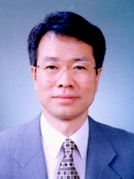 KAIST Professor Whang Turns VLDB Journal Into One of the Best in Its Field
Kyu-Young Whang, a Distinguished Professor at KAIST’s Computer Science Department, has developed The VLDB Journal into one of the world’s best journals on database technology.
Professor Whang, Editor-in-Chief of The VLDB Journal, is credited for the journal’s remarkable success evidenced by the rise of the publication’s Science Citation Index (SCI) impact factor from 3.818 to 6.8 in the period of one year. This placed the VLDB in the first place amongst 99 information systems journals and 44 hardware and architecture-related journals registered with the SCI. With only the exception of the Survey Journal, this makes The VLDB Journal the best in computer science.
The VLDB Journal is a quarterly journal published on behalf of the VLDB Endowment. The journal, launched in 1992, is dedicated to the publication of scholarly contributions to the advancement of information system architectures, the impact of technological advancements on information systems, and the development of novel database applications.
The VLDB Journal’s closest competitors in database technology, IEEE Transactions on Knowledge and Data Engineering and ACM Transactions on Database Systems, received an impact factor of 2.236 and 1.613 respectively. Comparatively, Professor Whang’s journal retains an impact factor nearly 3 to 4 times greater.
During Professor Whang’s six-year term as Editor-in-Chief, he has actively pursued the use of innovative ideas, strengthened the board of editors, standardized the length of review time, and made the journal much more accessible through the Internet. Furthermore, he drastically reduced publication time and sought a policy that focused more on the journal’s readers, which led to The VLDB Journal’s SCI impact factor rising from 1.149 (2002) to 6.8 (2008).
As one of The VLDB Journal’s founding members, Professor Whang has worked for the advancement of his journal tirelessly for 19 years with many accomplishments in database technology, including physical database design, determining the quality of a database, and the creation of a database management system. As a result, Professor Whang became the first IEEE fellow concerning domestic computer science. He is also a trustee of The VLDB Endowment, a fellow of the Korean Academy of Science and Technology, and of course, a Distinguished Professor at KAIST.
2009.07.16 View 17166
KAIST Professor Whang Turns VLDB Journal Into One of the Best in Its Field
Kyu-Young Whang, a Distinguished Professor at KAIST’s Computer Science Department, has developed The VLDB Journal into one of the world’s best journals on database technology.
Professor Whang, Editor-in-Chief of The VLDB Journal, is credited for the journal’s remarkable success evidenced by the rise of the publication’s Science Citation Index (SCI) impact factor from 3.818 to 6.8 in the period of one year. This placed the VLDB in the first place amongst 99 information systems journals and 44 hardware and architecture-related journals registered with the SCI. With only the exception of the Survey Journal, this makes The VLDB Journal the best in computer science.
The VLDB Journal is a quarterly journal published on behalf of the VLDB Endowment. The journal, launched in 1992, is dedicated to the publication of scholarly contributions to the advancement of information system architectures, the impact of technological advancements on information systems, and the development of novel database applications.
The VLDB Journal’s closest competitors in database technology, IEEE Transactions on Knowledge and Data Engineering and ACM Transactions on Database Systems, received an impact factor of 2.236 and 1.613 respectively. Comparatively, Professor Whang’s journal retains an impact factor nearly 3 to 4 times greater.
During Professor Whang’s six-year term as Editor-in-Chief, he has actively pursued the use of innovative ideas, strengthened the board of editors, standardized the length of review time, and made the journal much more accessible through the Internet. Furthermore, he drastically reduced publication time and sought a policy that focused more on the journal’s readers, which led to The VLDB Journal’s SCI impact factor rising from 1.149 (2002) to 6.8 (2008).
As one of The VLDB Journal’s founding members, Professor Whang has worked for the advancement of his journal tirelessly for 19 years with many accomplishments in database technology, including physical database design, determining the quality of a database, and the creation of a database management system. As a result, Professor Whang became the first IEEE fellow concerning domestic computer science. He is also a trustee of The VLDB Endowment, a fellow of the Korean Academy of Science and Technology, and of course, a Distinguished Professor at KAIST.
2009.07.16 View 17166 -
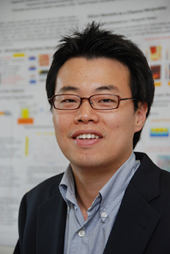 Prof. Park to Receive HP's Annual Innovation Research Award
Prof. In-Kyu Park of the Department of Mechanical Engineering, KAIST, has been will receive an award from Hewlett-Packard"s second annual Labs Innovation Research Program, university authorities said on Wednesday (July 8).
Prof. Park was chosen as the winner of the research award for his paper entitled "Eco-friendly nanomanufacturing for intelligent environment sensing applications."
Sixty projects from 46 universities in 12 countries were selected as the recipients of the awards from HP Labs, the company"s central research arm. The program is designed to create opportunities for colleges, universities and research institutes to conduct collaborative research with HP.
HP Labs Innovation Research Awards provide project funding of up to $100,000 for one year to each of the chosen academic institutions, which is renewable for up to three years based on research progress and HP business requirements.
Prof. Park has conducted joint researches on nanoimprinting, nanosensors, and nanoelectronics with HP"s Information and Quantum Systems Lab since 2005. Starting from the later half of 2009, he is to receive research grants under the industry-academia cooperation program of the world"s information technology giant firm.
2009.07.09 View 16776
Prof. Park to Receive HP's Annual Innovation Research Award
Prof. In-Kyu Park of the Department of Mechanical Engineering, KAIST, has been will receive an award from Hewlett-Packard"s second annual Labs Innovation Research Program, university authorities said on Wednesday (July 8).
Prof. Park was chosen as the winner of the research award for his paper entitled "Eco-friendly nanomanufacturing for intelligent environment sensing applications."
Sixty projects from 46 universities in 12 countries were selected as the recipients of the awards from HP Labs, the company"s central research arm. The program is designed to create opportunities for colleges, universities and research institutes to conduct collaborative research with HP.
HP Labs Innovation Research Awards provide project funding of up to $100,000 for one year to each of the chosen academic institutions, which is renewable for up to three years based on research progress and HP business requirements.
Prof. Park has conducted joint researches on nanoimprinting, nanosensors, and nanoelectronics with HP"s Information and Quantum Systems Lab since 2005. Starting from the later half of 2009, he is to receive research grants under the industry-academia cooperation program of the world"s information technology giant firm.
2009.07.09 View 16776 -
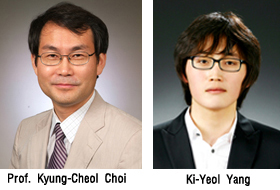 Prof. Choi Unveils Method to Improve Emission Efficiency of OLED
A KAIST research team led by Prof. Kyung-Cheol Choi of the School of Electrical Engineering & Computer Science discovered the surface plasmon-enhanced spontaneous emission based on an organic light-emitting device (OLED), a finding expected to improve OLED"s emission efficiency, KAIST authorities said on Thursday (July 9).
For surface plasmon localization, silver nanoparticles were thermally deposited in a high vacuum on cathode. Since plasmons provide a strong oscillator decay channel, time-resolved photoluninescene (PL) results displayed a 1.75-fold increased emission rate, and continuous wave PL results showed a twofold enhanced intensity.
"The method using surface plasmon represents a new technology to enhance the emission efficiency of OLED. It is expected to greatly contribute to the development of new technologies in OLED and flexible display, as well as securing original technology," Prof. Choi said.
The finding was published in the April issue of Applied Physics Letters and the June 25 issue of Optics Express. It will be also featured as the research highlight of the August issue of Nature Photonics and Virtual Journal of Ultrafast Science.
2009.07.09 View 22755
Prof. Choi Unveils Method to Improve Emission Efficiency of OLED
A KAIST research team led by Prof. Kyung-Cheol Choi of the School of Electrical Engineering & Computer Science discovered the surface plasmon-enhanced spontaneous emission based on an organic light-emitting device (OLED), a finding expected to improve OLED"s emission efficiency, KAIST authorities said on Thursday (July 9).
For surface plasmon localization, silver nanoparticles were thermally deposited in a high vacuum on cathode. Since plasmons provide a strong oscillator decay channel, time-resolved photoluninescene (PL) results displayed a 1.75-fold increased emission rate, and continuous wave PL results showed a twofold enhanced intensity.
"The method using surface plasmon represents a new technology to enhance the emission efficiency of OLED. It is expected to greatly contribute to the development of new technologies in OLED and flexible display, as well as securing original technology," Prof. Choi said.
The finding was published in the April issue of Applied Physics Letters and the June 25 issue of Optics Express. It will be also featured as the research highlight of the August issue of Nature Photonics and Virtual Journal of Ultrafast Science.
2009.07.09 View 22755 -
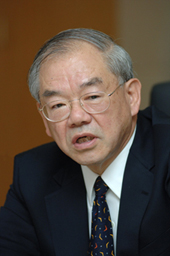 KAIST President Suh Honored with 2009 ASME Medal
KAIST President Nam-Pyo Suh has chosen as the 2009 winner of the ASME Medal presented by the American Society of Mechanical Engineers, university authorities said on Thursday (July 2).
President Suh received the honor for "seminal contributions to the advancement of engineering through research in tribology, polymer processing, metal processing, design and manufacturing, as well as contributions to engineering education and research infrastructure."
The selection of President Suh was unanimously approved by the 13-member Board of Governors of the ASME. Suh became the first scientist of Asian descent in the award"s 89-year-long history.
Founded in 1880, the ASME is a non-profit professional organization promoting the art, science and practice of mechanical and multidisciplinary engineering and allied sciences. The organization is known for setting codes and standards for mechanical devices. As of 2009, it has 120,000 members worldwide.
Only one ASME medal is awarded annually to recognize "eminently distinguished achievement." The award consists of a $17,000 honorarium, a gold medal, certificate and travel supplement for two days. It will be presented to President Suh during the 2009 International Mechanical Engineering Congress and Exposition, which will be held in Lake Buena Vista, Florida, November 13-10, 2009.
President Suh is an internationally known educator, engineer and inventor. Born in Korea, he immigrated to the U.S. in 1954 to join his father, who was teaching at Harvard. He earned both his bachelor"s and master"s degrees from MIT before coming to Carnegie Tech for his doctoral education in mechanical engineering.
While teaching at MIT, he founded the MIT-Industry Polymer Processing Program in 1973 and the Laboratory for Manufacturing and Productivity. He left these positions in 1984 to serve with the U.S. National Science Foundation as its assistant director for engineering, until 1988.
He invented many new materials, products and manufacturing processes, earning more than 60 U. S. patents and founding several companies. He has written seven books and more than 300 scholarly papers. Among dozens of honors throughout his career, President Suh most recently received the 2007 Lifetime Achievement from the Society of Plastics Engineers.
The ASME conducts one of the world"s largest technical publishing operations through its ASME Press, holds numerous technical conferences and hundreds of professional development courses each year, and sponsors numerous outreach and educational programs.
2009.07.02 View 15565
KAIST President Suh Honored with 2009 ASME Medal
KAIST President Nam-Pyo Suh has chosen as the 2009 winner of the ASME Medal presented by the American Society of Mechanical Engineers, university authorities said on Thursday (July 2).
President Suh received the honor for "seminal contributions to the advancement of engineering through research in tribology, polymer processing, metal processing, design and manufacturing, as well as contributions to engineering education and research infrastructure."
The selection of President Suh was unanimously approved by the 13-member Board of Governors of the ASME. Suh became the first scientist of Asian descent in the award"s 89-year-long history.
Founded in 1880, the ASME is a non-profit professional organization promoting the art, science and practice of mechanical and multidisciplinary engineering and allied sciences. The organization is known for setting codes and standards for mechanical devices. As of 2009, it has 120,000 members worldwide.
Only one ASME medal is awarded annually to recognize "eminently distinguished achievement." The award consists of a $17,000 honorarium, a gold medal, certificate and travel supplement for two days. It will be presented to President Suh during the 2009 International Mechanical Engineering Congress and Exposition, which will be held in Lake Buena Vista, Florida, November 13-10, 2009.
President Suh is an internationally known educator, engineer and inventor. Born in Korea, he immigrated to the U.S. in 1954 to join his father, who was teaching at Harvard. He earned both his bachelor"s and master"s degrees from MIT before coming to Carnegie Tech for his doctoral education in mechanical engineering.
While teaching at MIT, he founded the MIT-Industry Polymer Processing Program in 1973 and the Laboratory for Manufacturing and Productivity. He left these positions in 1984 to serve with the U.S. National Science Foundation as its assistant director for engineering, until 1988.
He invented many new materials, products and manufacturing processes, earning more than 60 U. S. patents and founding several companies. He has written seven books and more than 300 scholarly papers. Among dozens of honors throughout his career, President Suh most recently received the 2007 Lifetime Achievement from the Society of Plastics Engineers.
The ASME conducts one of the world"s largest technical publishing operations through its ASME Press, holds numerous technical conferences and hundreds of professional development courses each year, and sponsors numerous outreach and educational programs.
2009.07.02 View 15565 -
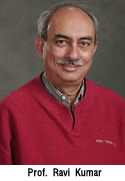 USC Professor Appointed New Dean of KAIST College of Business
Ravi Kumar, former vice dean of the Graduate and International Program at the University of Southern California, has been appointed as dean of the KAIST College of Business, the university announced on Tuesday (June 30).
Dr. Kumar has been a professor of information and operations management at the Marshall School of Business, USC. He is widely known for his research on global operations, particularly in improving operational performance through cellular design and integrated decision-making with marketing and information technology.
KAIST President Nam-Pyo Suh said: "We are fortunate to have Prof. Kumar as the new Dean of the College of Business. He has made many important contributions to the USC business school, especially in adding international dimensions to the school"s activities. He has established an impeccable reputation as a scholar and visionary. We expect that he will display great leadership in making the KAIST College of Business one of the best schools of its kind in the world."
Prof. Kumar received his bachelor degree from the Indian Institute of Technology in 1974, master degree from the University of Texas, Arlington, in 1976 and doctorate degree from Northwestern University in 1981.
His papers have been published in Management Science, Marketing Science, Journal of Economic Theory, Production and Operations Management, Journal of Operations Management and Journal of Management Information Systems. He serves as a senior editor on the Board of Production and Operations management and Operations management Educational Review.
He has won several awards for teaching excellence at both the University of Illinois Urbana-Champaign and USC. They included the Outstanding Educator Award and the Golden Apple Teaching Award.
Prof. Kumar has extensive international consulting experiences with Rolls Royce, BMW, Daimler Benz Aerospace, ABB, Ericsson, BAS Global, Motorola, Reuters, Du Pont, Sanwa Bank, Korea First Bank, Korean Air, Infosys, Acer, Shell Hong Kong and other companies.
2009.07.01 View 15586
USC Professor Appointed New Dean of KAIST College of Business
Ravi Kumar, former vice dean of the Graduate and International Program at the University of Southern California, has been appointed as dean of the KAIST College of Business, the university announced on Tuesday (June 30).
Dr. Kumar has been a professor of information and operations management at the Marshall School of Business, USC. He is widely known for his research on global operations, particularly in improving operational performance through cellular design and integrated decision-making with marketing and information technology.
KAIST President Nam-Pyo Suh said: "We are fortunate to have Prof. Kumar as the new Dean of the College of Business. He has made many important contributions to the USC business school, especially in adding international dimensions to the school"s activities. He has established an impeccable reputation as a scholar and visionary. We expect that he will display great leadership in making the KAIST College of Business one of the best schools of its kind in the world."
Prof. Kumar received his bachelor degree from the Indian Institute of Technology in 1974, master degree from the University of Texas, Arlington, in 1976 and doctorate degree from Northwestern University in 1981.
His papers have been published in Management Science, Marketing Science, Journal of Economic Theory, Production and Operations Management, Journal of Operations Management and Journal of Management Information Systems. He serves as a senior editor on the Board of Production and Operations management and Operations management Educational Review.
He has won several awards for teaching excellence at both the University of Illinois Urbana-Champaign and USC. They included the Outstanding Educator Award and the Golden Apple Teaching Award.
Prof. Kumar has extensive international consulting experiences with Rolls Royce, BMW, Daimler Benz Aerospace, ABB, Ericsson, BAS Global, Motorola, Reuters, Du Pont, Sanwa Bank, Korea First Bank, Korean Air, Infosys, Acer, Shell Hong Kong and other companies.
2009.07.01 View 15586 -
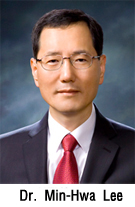 Lecture Hall Named After Venture Businessman Min-Hwa Lee
A lecture hall in the Alumni Start-Up Building on the KAIST campus was named Min-Hwa Lee Hall in a ceremony on Tuesday to pay tribute to KAIST alumnus Min-Hwa Lee"s contributions to the development of Korean venture business.
On hand at the ceremony were Sung-Woo Hong, head of the Small and Medium Business Administration, KAIST President Nam-Pyo Suh, dozens of KAIST alumni representatives, and figures from government research institutes.
Lee, who obtained his M.S. (1978) and Ph.D. (1985) in Electrical Engineering from KAIST, established a fund of 10 billion won along with other KAIST alumni in 2001 and donated it for the construction of the Alumni Start-Up Building for aspiring entrepreneurs. To remember his lofty vision, KAIST decided to name a lecture hall after him.
As a venture businessman, Lee founded the Madison, Ltd., one of the earliest venture companies in Korea, in 1985. Lee then played a leading role in the creation of the Korea Venture Industry Association in 1995, and in the establishment of KOSDAQ and the enactment of a special law for venture enterprises.
KAIST will appoint Lee as an adjunct professor in recognition of his expertise in venture business and commercialization of new inventions. Lee will teach entrepreneurship at the Graduate School of Management and the Institute for Gifted Students, a KAIST affiliate.
"Dr. Lee has made a great contribution to the development of Korean venture business. At a time when commercialization of new inventions was at an infant stage, he nurtured technology ventures and built the foundation for the proliferation of technology venture," President Suh said. "We expect that he will strive to open the generation of technologies which will lead the development of Korea in the future and become a mentor of aspiring entrepreneurs," Suh added.
2009.06.30 View 17873
Lecture Hall Named After Venture Businessman Min-Hwa Lee
A lecture hall in the Alumni Start-Up Building on the KAIST campus was named Min-Hwa Lee Hall in a ceremony on Tuesday to pay tribute to KAIST alumnus Min-Hwa Lee"s contributions to the development of Korean venture business.
On hand at the ceremony were Sung-Woo Hong, head of the Small and Medium Business Administration, KAIST President Nam-Pyo Suh, dozens of KAIST alumni representatives, and figures from government research institutes.
Lee, who obtained his M.S. (1978) and Ph.D. (1985) in Electrical Engineering from KAIST, established a fund of 10 billion won along with other KAIST alumni in 2001 and donated it for the construction of the Alumni Start-Up Building for aspiring entrepreneurs. To remember his lofty vision, KAIST decided to name a lecture hall after him.
As a venture businessman, Lee founded the Madison, Ltd., one of the earliest venture companies in Korea, in 1985. Lee then played a leading role in the creation of the Korea Venture Industry Association in 1995, and in the establishment of KOSDAQ and the enactment of a special law for venture enterprises.
KAIST will appoint Lee as an adjunct professor in recognition of his expertise in venture business and commercialization of new inventions. Lee will teach entrepreneurship at the Graduate School of Management and the Institute for Gifted Students, a KAIST affiliate.
"Dr. Lee has made a great contribution to the development of Korean venture business. At a time when commercialization of new inventions was at an infant stage, he nurtured technology ventures and built the foundation for the proliferation of technology venture," President Suh said. "We expect that he will strive to open the generation of technologies which will lead the development of Korea in the future and become a mentor of aspiring entrepreneurs," Suh added.
2009.06.30 View 17873 -
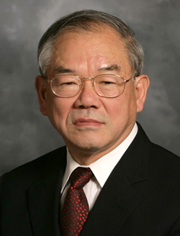 President Suh Speaks on Innovation in Asia at Glion Colloquium
KAIST President Nam-Pyo Suh stressed the importance of innovation in economic advancement in an address he delivered at the Glion Colloquium held in Glion, Switzerland, university authorities said on Wednesday (June 24).
In the speech, entitled "On Innovation Strategies: An Asian Perspective," President Suh said that for Asian countries such as China, Japan, Korea and Taiwan to continue to compete in the global economy, they must become innovators.
Over the past decade the Glion Colloquium organized by the University of Geneva has established itself as an influential international forum on higher education issues, related to research intensive universities in particular.
When it was launched in 1998, the Glion Colloquium immediately drew worldwide attention with “The Glion Declaration: the University at the Millennium,” prepared for the 1998 Paris UNESCO World Conference on Higher Education in the 21st Century.
Every two years, the colloquium brings together in Glion, Switzerland, leaders from renowned universities and higher education organizations, along with influential business and government figures, from North America, Europe and other parts of the world.
2009.06.25 View 11965
President Suh Speaks on Innovation in Asia at Glion Colloquium
KAIST President Nam-Pyo Suh stressed the importance of innovation in economic advancement in an address he delivered at the Glion Colloquium held in Glion, Switzerland, university authorities said on Wednesday (June 24).
In the speech, entitled "On Innovation Strategies: An Asian Perspective," President Suh said that for Asian countries such as China, Japan, Korea and Taiwan to continue to compete in the global economy, they must become innovators.
Over the past decade the Glion Colloquium organized by the University of Geneva has established itself as an influential international forum on higher education issues, related to research intensive universities in particular.
When it was launched in 1998, the Glion Colloquium immediately drew worldwide attention with “The Glion Declaration: the University at the Millennium,” prepared for the 1998 Paris UNESCO World Conference on Higher Education in the 21st Century.
Every two years, the colloquium brings together in Glion, Switzerland, leaders from renowned universities and higher education organizations, along with influential business and government figures, from North America, Europe and other parts of the world.
2009.06.25 View 11965 -
 KAIST to hold International Workshop on Flexible Displays
The 2009 KAIST International Workshop on Flexible Displays will take place at the Electrical Engineering Building on June 25, university sources said on Tuesday (June 23).
The workshop organized by the Center for Advanced Flexible Display Convergence (CAFDC) will explore the status and future vision of flexible and transparent plasma displays, which are among the key technologies for the development of the next-generation displays. There will be also discussions about technologies to realize the large-scale flexible and transparent display which is regarded as the display of the future.
Among the speakers are some of the most prominent figures in the field. Gary Eden from University of Illinois, Prof. Kunihide Tachibana from Kyoto University, and Carol Wedding, the president of Imaging Systems Tech., USA and several other well-known professors and engineers will participate in the workshop.
Professor Kyung-Cheol Choi, CAFDC chair, said: "The workshop will provide an excellent opportunity to examine the flexible and transparent plasma display technologies. It will also be a good chance to explore large-scale flexible and transparent displays from various technical viewpoints."
2009.06.24 View 21047
KAIST to hold International Workshop on Flexible Displays
The 2009 KAIST International Workshop on Flexible Displays will take place at the Electrical Engineering Building on June 25, university sources said on Tuesday (June 23).
The workshop organized by the Center for Advanced Flexible Display Convergence (CAFDC) will explore the status and future vision of flexible and transparent plasma displays, which are among the key technologies for the development of the next-generation displays. There will be also discussions about technologies to realize the large-scale flexible and transparent display which is regarded as the display of the future.
Among the speakers are some of the most prominent figures in the field. Gary Eden from University of Illinois, Prof. Kunihide Tachibana from Kyoto University, and Carol Wedding, the president of Imaging Systems Tech., USA and several other well-known professors and engineers will participate in the workshop.
Professor Kyung-Cheol Choi, CAFDC chair, said: "The workshop will provide an excellent opportunity to examine the flexible and transparent plasma display technologies. It will also be a good chance to explore large-scale flexible and transparent displays from various technical viewpoints."
2009.06.24 View 21047 -
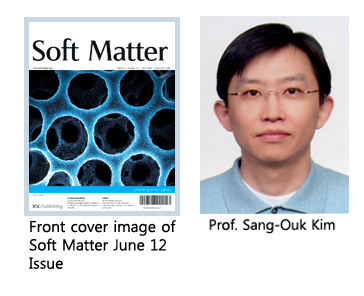 Prof. Sang-Ouk Kim Featured on the Cover of Emerging Investigator Special Issue
KAIST Prof. Sang-Ouk Kim of the Department of Materials Science and Engineering was featured on the cover of the Emerging Investigator Special Issue published by Britain"s Royal Society of Chemistry on June 21, university authorities said on Monday (June 22).
The special issue shed spotlight on 18 up-and-coming scientists who have been selected through the recommendation and rigorous screening process of the editorial and advisory boards of the Royal Society of Chemistry. The 18 scientists consist of six from the American continent, 10 from Europe, one from Japan and one from Korea.
The journal introduced Prof. Kim"s paper, titled "Highly entangled carbon nanotube (CNT) scaffolds by self-organized aqueous droplets." Kim explained in the paper that the cellular CNT demonstrated high electrical conductivity and field-emission properties, which is potentially useful for various applications in electronics and energy storage devices.
2009.06.24 View 15132
Prof. Sang-Ouk Kim Featured on the Cover of Emerging Investigator Special Issue
KAIST Prof. Sang-Ouk Kim of the Department of Materials Science and Engineering was featured on the cover of the Emerging Investigator Special Issue published by Britain"s Royal Society of Chemistry on June 21, university authorities said on Monday (June 22).
The special issue shed spotlight on 18 up-and-coming scientists who have been selected through the recommendation and rigorous screening process of the editorial and advisory boards of the Royal Society of Chemistry. The 18 scientists consist of six from the American continent, 10 from Europe, one from Japan and one from Korea.
The journal introduced Prof. Kim"s paper, titled "Highly entangled carbon nanotube (CNT) scaffolds by self-organized aqueous droplets." Kim explained in the paper that the cellular CNT demonstrated high electrical conductivity and field-emission properties, which is potentially useful for various applications in electronics and energy storage devices.
2009.06.24 View 15132